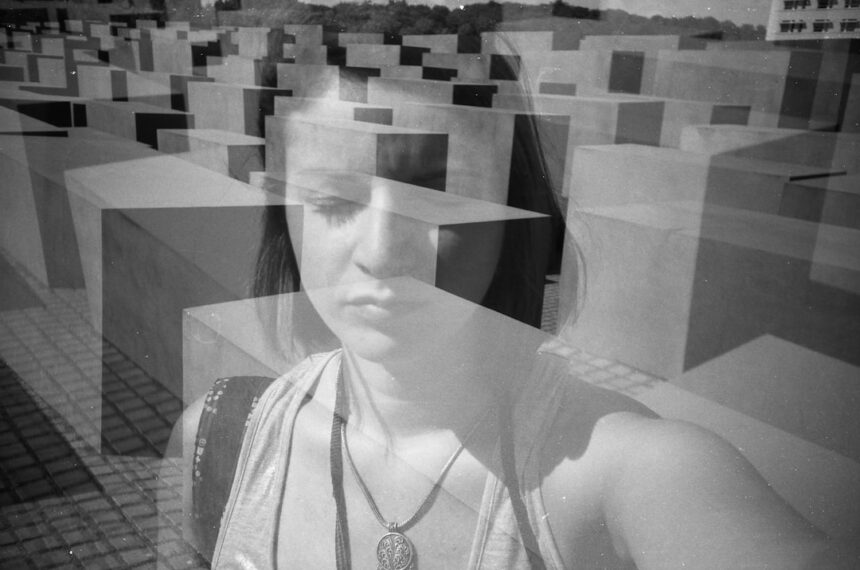Depersonalization and derealization are complex psychological phenomena that can leave you feeling detached from yourself or your surroundings. When you experience depersonalization, you may feel as though you are an observer of your own life, as if you are watching yourself from a distance. This sensation can be disorienting and unsettling, often leading to feelings of confusion and anxiety.
On the other hand, derealization involves a sense of unreality regarding your environment. You might perceive the world around you as foggy, dreamlike, or distorted, making it difficult to connect with your surroundings. These experiences can occur in isolation or together, often triggered by stress, trauma, or anxiety.
You may find that they interfere with your ability to engage fully in relationships, work, or even simple daily activities. By acknowledging the nature of depersonalization and derealization, you can begin to explore the underlying factors contributing to these feelings and take steps toward addressing them.
Key Takeaways
- Depersonalization is a feeling of being disconnected from oneself, while derealization is a sense of being detached from the world.
- Symptoms of depersonalization and derealization include feeling like an outside observer of one’s thoughts or body, and experiencing a distorted perception of time and space.
- Seeking professional help from a therapist or psychiatrist is crucial for managing depersonalization and derealization.
- Therapy options such as cognitive behavioral therapy (CBT) and dialectical behavior therapy (DBT) can be effective in treating depersonalization and derealization.
- Self-care and coping strategies, mindfulness and grounding techniques, and building a support system are important for managing depersonalization and derealization.
Recognizing the Symptoms
Recognizing the symptoms of depersonalization and derealization is the first step toward understanding what you are experiencing. You might notice that you feel disconnected from your thoughts, emotions, or body. This disconnection can manifest as a sense of numbness or emotional flatness, making it challenging to engage with your feelings or express them to others.
You may also find it difficult to remember certain events or experiences, leading to a sense of confusion about your identity and personal history. In addition to emotional symptoms, physical sensations may accompany these experiences. You might feel as though your body is not your own or that you are moving through life in a fog.
This can lead to difficulties in concentration and memory, further exacerbating feelings of anxiety and distress. By identifying these symptoms, you can better articulate your experiences to yourself and others, paving the way for effective coping strategies and professional support.
Seeking Professional Help

If you find yourself grappling with depersonalization and derealization, seeking professional help is a vital step toward recovery. Mental health professionals can provide you with the tools and support necessary to navigate these challenging experiences. A therapist or psychologist can help you explore the underlying causes of your symptoms, whether they stem from anxiety, trauma, or other mental health conditions.
They can also assist you in developing coping strategies tailored to your unique situation. When seeking help, it’s essential to find a mental health professional who understands depersonalization and derealization. You may want to consider therapists who specialize in trauma-informed care or those who have experience working with dissociative disorders.
Building a trusting relationship with your therapist can create a safe space for you to explore your feelings and experiences without judgment. Remember that seeking help is a sign of strength and an important step toward reclaiming your sense of self.
Therapy Options for Depersonalization and Derealization
| Therapy Option | Description |
|---|---|
| Cognitive Behavioral Therapy (CBT) | A type of psychotherapy that helps individuals identify and change negative thought patterns and behaviors. |
| Exposure Therapy | A form of CBT that involves gradually exposing individuals to the situations or objects that trigger their symptoms. |
| Mindfulness-Based Therapy | Focuses on increasing awareness of the present moment and developing coping strategies for managing distressing symptoms. |
| Eye Movement Desensitization and Reprocessing (EMDR) | A therapy that helps individuals process traumatic memories and reduce their emotional impact. |
| Medication | In some cases, medication such as antidepressants or anti-anxiety drugs may be prescribed to help manage symptoms. |
There are various therapeutic approaches available for addressing depersonalization and derealization. Cognitive-behavioral therapy (CBT) is one of the most commonly used methods, focusing on identifying and challenging negative thought patterns that contribute to your feelings of detachment. Through CBT, you can learn to reframe your thoughts and develop healthier coping mechanisms that promote emotional regulation.
Another effective therapeutic option is dialectical behavior therapy (DBT), which emphasizes mindfulness and emotional regulation skills. DBT can help you cultivate awareness of your thoughts and feelings while providing tools to manage distressing emotions. Additionally, eye movement desensitization and reprocessing (EMDR) therapy may be beneficial if your symptoms are linked to past trauma.
Medication Options
While therapy is often the primary treatment for depersonalization and derealization, medication may also play a role in managing symptoms. Antidepressants, particularly selective serotonin reuptake inhibitors (SSRIs), can help alleviate anxiety and depression that may accompany these experiences. In some cases, anti-anxiety medications may be prescribed to provide short-term relief from acute symptoms.
It’s important to consult with a psychiatrist or primary care physician who understands your specific situation before starting any medication regimen. They can help determine the most appropriate options based on your symptoms and overall mental health history. Keep in mind that medication is not a standalone solution; it is most effective when combined with therapy and other supportive measures.
Self-Care and Coping Strategies

Incorporating self-care practices into your daily routine can significantly enhance your ability to cope with depersonalization and derealization. Engaging in activities that promote relaxation and well-being is essential for grounding yourself in the present moment. Simple practices such as deep breathing exercises, yoga, or meditation can help reduce anxiety and foster a sense of connection with your body.
Additionally, maintaining a healthy lifestyle can support your mental health. Regular physical activity, balanced nutrition, and adequate sleep are crucial components of self-care that can positively impact your mood and overall well-being. You might also consider journaling as a way to express your thoughts and feelings, providing an outlet for processing your experiences while fostering self-reflection.
Lifestyle Changes to Support Recovery
Making lifestyle changes can significantly contribute to your recovery from depersonalization and derealization. One key aspect is establishing a consistent daily routine that includes time for self-care activities, social interactions, and relaxation. A structured routine can provide a sense of stability and predictability in your life, which may help alleviate feelings of disconnection.
Moreover, reducing stressors in your life is essential for supporting recovery. This might involve setting boundaries in relationships, managing work-related stress, or finding ways to cope with external pressures. Engaging in hobbies or activities that bring you joy can also serve as a positive distraction from distressing thoughts and feelings, allowing you to reconnect with yourself and the world around you.
Mindfulness and Grounding Techniques
Mindfulness practices can be particularly beneficial for managing depersonalization and derealization symptoms. By cultivating present-moment awareness, you can learn to observe your thoughts and feelings without judgment, reducing their power over you. Techniques such as mindful breathing or body scans can help anchor you in the present moment, fostering a sense of connection with yourself.
Grounding techniques are also effective in combating feelings of detachment. These strategies involve using your senses to reconnect with reality. For example, you might focus on the sensation of your feet on the ground or the texture of an object in your hand.
Engaging in activities that stimulate your senses—such as listening to music, savoring food, or spending time in nature—can help bring you back into your body and environment.
Building a Support System
Building a strong support system is crucial for navigating the challenges associated with depersonalization and derealization. Surrounding yourself with understanding friends and family members who are willing to listen can provide comfort during difficult times. Sharing your experiences with trusted individuals can help reduce feelings of isolation and foster a sense of belonging.
Consider joining support groups where you can connect with others who share similar experiences. These groups offer a safe space for discussing challenges and coping strategies while providing validation for what you are going through. Knowing that others understand your struggles can be incredibly empowering as you work toward recovery.
Addressing Underlying Causes
To effectively manage depersonalization and derealization, it’s essential to address any underlying causes contributing to these experiences. This may involve exploring past traumas or unresolved emotional issues that could be influencing your mental health. Working with a therapist can facilitate this process by providing guidance as you delve into these deeper aspects of yourself.
Additionally, recognizing patterns in your life that trigger symptoms is vital for developing effective coping strategies. By identifying stressors or situations that exacerbate feelings of detachment, you can work on creating healthier responses or avoiding those triggers when possible. This proactive approach empowers you to take control of your mental health journey.
The Road to Recovery: Setting Realistic Expectations
Recovery from depersonalization and derealization is often not linear; it involves ups and downs along the way. Setting realistic expectations for yourself is crucial as you navigate this journey. Understand that progress may take time, and it’s normal to experience setbacks along the way.
Celebrate small victories as they come—whether it’s feeling more connected during a social interaction or successfully implementing coping strategies during moments of distress. Remember that healing is a process that requires patience and self-compassion. By acknowledging where you are on this journey without judgment, you create space for growth and resilience.
Surround yourself with supportive individuals who encourage you along the way, reminding you that recovery is possible and worth pursuing. In conclusion, understanding depersonalization and derealization is the first step toward reclaiming control over your mental health. By recognizing symptoms, seeking professional help, exploring therapy options, considering medication when necessary, practicing self-care, making lifestyle changes, utilizing mindfulness techniques, building a support system, addressing underlying causes, and setting realistic expectations for recovery, you empower yourself on this journey toward healing and wholeness.
In exploring solutions for depersonalization and derealization, it’s essential to consider various therapeutic approaches that can aid individuals in managing these dissociative experiences. One insightful resource is an article from Unplugged Psychology, which delves into practical strategies and therapeutic interventions for those struggling with these conditions. For a comprehensive understanding, you can read more about these solutions by visiting the article on Unplugged Psychology. This article provides valuable insights into how cognitive-behavioral therapy and mindfulness practices can be effectively utilized to alleviate symptoms and improve overall mental well-being.
Learn More About Depersonalization & Derealization
FAQs
What is depersonalization-derealization disorder?
Depersonalization-derealization disorder is a mental health condition characterized by feeling detached from oneself (depersonalization) and feeling detached from the world around them (derealization). It can be a distressing and disruptive experience for those who suffer from it.
What are some common symptoms of depersonalization-derealization disorder?
Common symptoms of depersonalization-derealization disorder include feeling like an outside observer of one’s thoughts, feelings, and actions (depersonalization), feeling like the world is unreal or distorted (derealization), emotional numbness, and a sense of detachment from one’s body.
What are some potential solutions for depersonalization-derealization disorder?
Some potential solutions for depersonalization-derealization disorder include therapy (such as cognitive behavioral therapy or dialectical behavior therapy), medication (such as antidepressants or anti-anxiety medications), stress management techniques, and lifestyle changes (such as regular exercise and healthy sleep habits).
Can depersonalization-derealization disorder be cured?
There is no specific cure for depersonalization-derealization disorder, but many people find relief from their symptoms through a combination of therapy, medication, and lifestyle changes. It is important for individuals to work with a mental health professional to find the best treatment plan for their specific needs.




